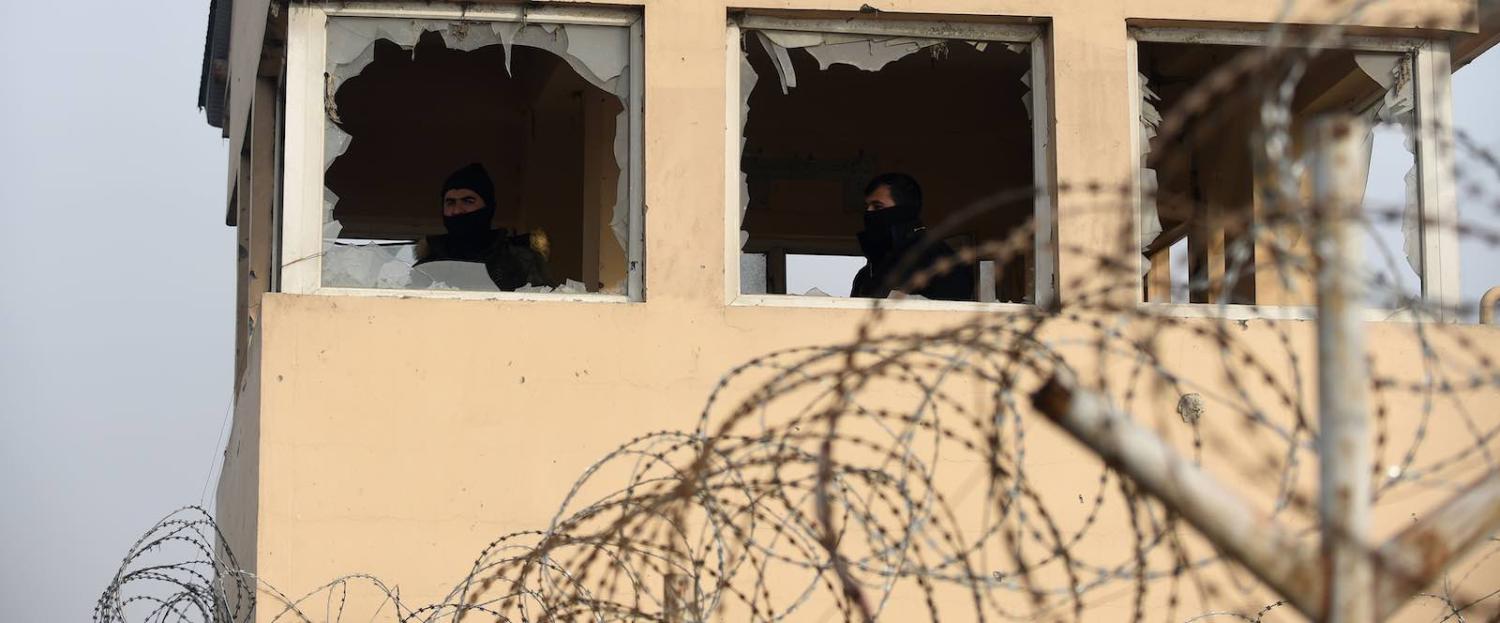Afghanistan’s upcoming presidential elections are due in July and there are, at best, contradictory signals about progress on the negotiations with the Taliban.
Despite 2018 being one of the most violent years in Afghanistan’s post 9/11 history, last year also increased hopes on the possibility of getting the Taliban to the table for talks.
The historic three-day ceasefire in June, the Taliban’s agreement to enter into talks with Washington, and the Moscow conference held in November, together convinced the international community of the Taliban’s openness to engage in a potential solution.
However, the divergent goals and bargaining capacities of the stakeholders risk giving greater leverage to the Taliban. While on the one hand, Moscow and Tehran’s closeness with the Taliban contribute to the latter’s assertiveness, the trajectory of Washington’s talks with the Taliban this year signal that the Americans might be only interested in a graceful exit (with a potential possibility of retaining minimal troop presence).
Amid the ongoing powerplay and the talk of negotiations with the Taliban, the weakest link in the chain is the elected Afghan regime.
The Taliban’s willingness to negotiate stems more from the potential gains it seeks rather than from the political constraints it faces in engaging with Washington. The Taliban is trying to change the stalemate into its favour after Washington announced a time-bound approach to finalise a settlement.
Amid the ongoing powerplay and the talk of negotiations with the Taliban, the weakest link in the chain is the elected Afghan regime. Over the years, not only has the Taliban refused to recognise Afghanistan as a legitimate entity, US special envoy Zalmay Khalilzad kept President Ashraf Ghani out of the loop when he met with Taliban officials in Doha. The sense of urgency with which Khalilzad approaches negotiations has failed to draw a clear line between negotiable and non-negotiable aspects of the talks with the Taliban, and Kabul’s inability to assert its perspective only compounds the problem.
The fundamental contradiction emerging between the American and Afghan policies is the negotiation timeline. For one thing, Khalilzad was appointed as the special envoy in October to deliver results within six months. Ghani, by contrast, announced his own peace agenda in the Geneva conference, where he outlined a minimum five-year plan to implement a solution. This immediately flagged his interest in having another term in office.
Yet in the absence of any clear policy direction from the Afghan leadership, Khalilzad’s recent manoeuvres suggest he is leaning towards striking an arrangement with Pakistan at Kabul’s cost. Even if the role of Pakistani agencies in getting the Taliban on the talking table is crucial, the disregard for Kabul’s stance by Washington stems from Kabul’s internal disagreements that risk sidelining the legitimate demands of Afghan citizens.
From a pragmatic perspective, it appears that the stress of the task is mounting. In a recent interview, Khalilzad claimed that the Taliban had accepted the futility of waging armed conflict, but he also expressed his doubts over the group’s desire to end the conflict after it refused to talk to the Afghan delegation in the recent talks in Abu Dhabi.
Khalilzad’s claims can be substantiated by the Taliban’s open letter in February urging Washington to resolve the conflict. Yet again, this opportunity could not be exploited given the fractious Afghan leadership and intra-governmental differences over the negotiation process, which was partly responsible for the Afghan government being bypassed by Washington when talks with the Taliban were revived.
A divided leadership in Kabul has only emboldened the Taliban to demonstrate its “invincibility”, despite acknowledging that it cannot win the war with Americans. The US-Taliban talks held in Abu Dhabi in December were described as productive, yet the Taliban subsequently refused to participate in Riyadh talks citing Saudi pressure to engage with Kabul.
The failures of the Afghan leadership have also been compounded after Washington dropped the pre-conditions for negotiations in what appears to be an effort to quickly end the stalemate. Yet the signals are contradictory. Trump’s indication in December that he could move to pull out 7000 troops appears to reaffirm America’s willingness to reduce its military footprint. Meanwhile, Khalilzad’s talks with the Taliban seem to point towards an American interest in retaining a presence.
Soon after Trump’s withdrawal news spread in the media, the Afghan government appointed Asadullah Khalid and Amrullah Saleh as ministers of defence and interior respectively. Both are staunch critics of Ghani, with anti-Pakistan stance (but experienced intelligence officials). Ghani's choice seems to be a knee jerk decision as he comes to terms with Afghanistan’s deteriorating security situation. Nevertheless, they come after years of flawed decisions, miscommunication, and ineffective strategies about Afghanistan, while the Taliban, in its response, is expected to pose an even greater challenge for both Washington and Kabul.

